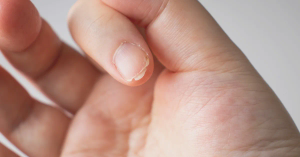The postpartum period is a time of immense physical and emotional adjustment for new mothers. While joy and exhaustion often accompany this phase, some women also experience postpartum headaches, which can range from mild discomfort to debilitating pain. Understanding the causes, preventive strategies, and relief options can help mothers manage these headaches effectively while recovering from childbirth.
What Are Postpartum Headaches?
Postpartum headaches occur in the weeks following delivery and may be caused by hormonal changes, physical exhaustion, stress, or underlying medical conditions. They can be classified into two main types:
• Primary headaches: Tension-type headaches or migraines not linked to other medical issues.
• Secondary headaches: Related to complications such as postpartum preeclampsia, cerebrospinal fluid (CSF) leaks after epidural anesthesia, or infections.
Causes of Postpartum Headaches
1. Hormonal Changes:
After delivery, the sudden drop in estrogen levels can trigger headaches, especially in women prone to migraines.
2. Sleep Deprivation and Fatigue:
The demands of caring for a newborn often disrupt sleep patterns, leading to physical exhaustion and tension headaches.
3. Dehydration and Hunger:
Breastfeeding increases hydration and caloric needs, and neglecting these can lead to headaches.
4. Anesthesia or Epidurals:
Women who receive spinal or epidural anesthesia may experience “spinal headaches” caused by cerebrospinal fluid leaks.
5. Postpartum Preeclampsia:
High blood pressure during the postpartum period can cause severe headaches and requires immediate medical attention.
6. Stress and Emotional Changes:
The postpartum period can be emotionally taxing, with increased stress or anxiety contributing to tension headaches.
Symptoms of Postpartum Headaches
• Tension headaches: Dull, aching pain or tightness around the head.
• Migraines: Throbbing pain, often on one side, accompanied by nausea, sensitivity to light, or sound.
• Spinal headaches: Severe pain, worsened by standing and relieved by lying down.
• Hypertensive headaches: Intense, persistent pain often accompanied by blurred vision or swelling.
When to Seek Medical Attention
Postpartum headaches can sometimes signal serious complications. Consult a doctor if you experience:
• Sudden, severe headaches.
• Persistent headaches lasting more than a few days.
• Associated symptoms such as blurred vision, confusion, or seizures.
• High blood pressure or swelling in the hands, feet, or face.
Prevention Strategies
1. Stay Hydrated:
Drink plenty of water, especially if breastfeeding, to prevent dehydration-induced headaches.
2. Eat Regularly:
Include balanced meals and healthy snacks to maintain energy levels and prevent hunger-related headaches.
3. Get Adequate Rest:
Sleep when the baby sleeps, and don’t hesitate to ask for help to reduce sleep deprivation.
4. Manage Stress:
Practice relaxation techniques such as deep breathing, meditation, or light yoga to alleviate stress.
5. Monitor Blood Pressure:
Regularly check your blood pressure during the postpartum period to detect any signs of hypertension.
6. Maintain Good Posture:
Avoid slouching while breastfeeding or holding the baby to prevent tension headaches.
Relief Options for Postpartum Headaches
1. Home Remedies:
• Apply a warm or cold compress to the head or neck to ease tension.
• Drink ginger tea for migraines, as it has anti-inflammatory properties.
• Try aromatherapy with soothing scents like lavender or peppermint.
2. Over-the-Counter Medications:
• Paracetamol or ibuprofen is generally safe during breastfeeding but consult your doctor before taking any medication.
3. Hydration and Nutrition:
• Replenish electrolytes with fluids like coconut water or oral rehydration solutions.
• Include magnesium-rich foods like nuts, seeds, and leafy greens, as magnesium deficiency can trigger migraines.
4. Physical Therapy:
• Gentle neck and shoulder massages can relieve tension-related headaches.
• Stretching exercises improve blood flow and reduce muscle tightness.
5. Medical Interventions:
• For spinal headaches, a procedure called a blood patch can seal the CSF leak and provide relief.
• Treat underlying conditions such as hypertension or infections under a doctor’s guidance.
Keynotes for Managing Postpartum Headaches
• Keep a headache diary to track triggers, frequency, and severity of headaches.
• Seek immediate medical attention if headaches are severe or accompanied by neurological symptoms.
• Take time for self-care, as postpartum recovery requires physical and emotional balance.
Conclusion
Postpartum headaches, though common, can significantly affect a new mother’s quality of life during an already challenging period. Identifying triggers, adopting preventive strategies, and using safe remedies can help manage these headaches effectively. Remember, seeking support from healthcare providers, family, and friends is vital for a smooth postpartum recovery.








